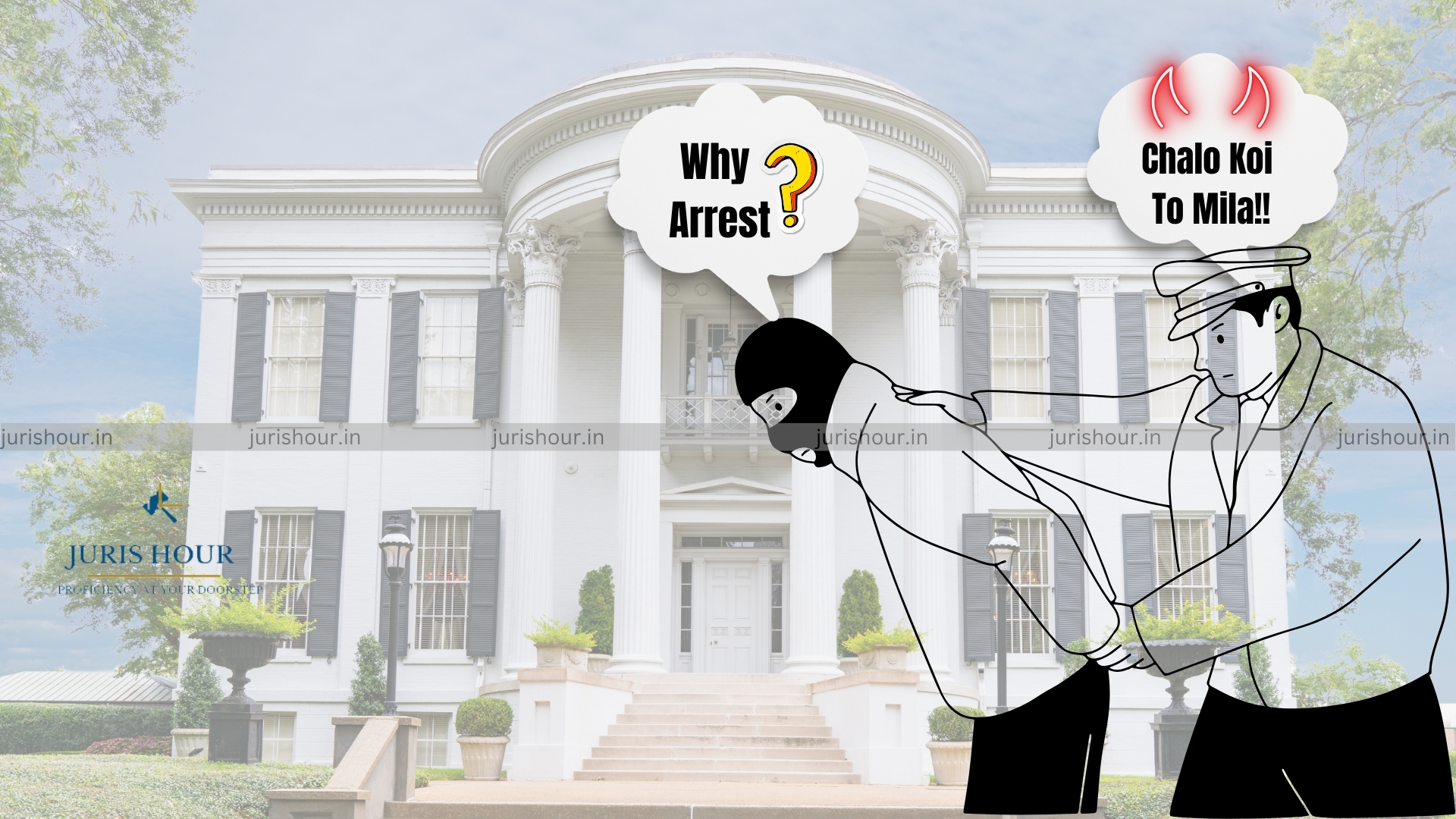2024 Ends, Misuse Of Arresting Power By GST Officer Still Continues : Court Comes To Rescue

2024 Ends, Misuse Of Arresting Power By GST Officer Still Continues

The article “2024 Ends, Misuse Of Arresting Power By GST Officer Still Continues : Court Comes To Rescue” authored by Dr. Sujay Kantawala, who has played an active role in assisting the judiciary to combat illegal arrest by the GST officers.
Introduction
The introduction of the Goods and Services Tax (GST) in India marked a significant reform in the country’s indirect taxation system. While the GST regime aimed to simplify tax compliance and boost revenue collections, concerns have arisen regarding the misuse of arrest powers vested in GST officers. These powers, intended to deter tax evasion, have sparked debates over their implementation and potential for abuse.
Legislative Framework
Section 69 of the Central Goods and Services Tax (CGST) Act empowers the Commissioner of GST to authorize the arrest of individuals if they believe an offense has been committed under Section 132 of the Act, such as issuing fraudulent invoices or evading taxes exceeding a specific threshold. While the law provides these powers to ensure compliance and deter significant tax evasion, the absence of robust checks and balances has opened the door to misuse.
Incidents of Misuse Of Power By GST Officer
Numerous reports highlight instances where GST officers have allegedly misused their arresting power, targeting businesses and individuals without sufficient evidence or due process. In some cases, arrests have been made based on ambiguous interpretations of the law or minimal irregularities, causing undue hardship to taxpayers. For example, businesses have faced arrests for alleged evasion even before an investigation has conclusively established guilt.
Recently, the Bombay High Court in the case of Mishal J Shah HUF Versus State of Maharashtra & ors. has issued contempt notice to state tax officer for illegal arrest of a businessman who was allegedly involved in wrongful availment of Input Tax Credit (ITC) worth Rs. 9.5 crores. The bench of Justice M.S. Sonak and Justice Jitendra Jain has observed that as per the Arrest Memo the authorisation for this arrest was obtained on 20 December 2024 itself and the Petitioner Mishal J Shah was arrested at 7.55 am on 20 December 2024 itself, amounts to interference with the administration of justice, and consequently, might amount to a Contempt of Court.
The Additional Chief Judicial Magistrate, Mumbai in the case of State Goods and Service Tax V/s Mishal Jaswant Shah has granted bail first day bail within few hours of arrest to accused involved in wrongful Input Tax Credit (ITC) availment citing it to be in an illegal and hasty manner.
The bench of G. R. Dhepe, Additional Chief Judicial Magistrate has observed that the offence under Section 132 of the GST Act is punishable upto 5 years. Pursuant to the second summons accused could have attended the office of the complainant for recording his statement. Therefore, the arrest of the accused was in a hasty manner though issued second summons for recording his statement on 30.12.2024.
There have been instances of arrest by the GST officers in the hasty manner. In the above case, where the summons was issued to the accused calling for recording his statement on 30.12.2024. The writ petition was pending in the Bombay High Court challenging the bank account freezing. Accused has been co-operating and attended the officers in his office on 28.11.2024 and 29.11.2024 when officers conducted inspection of premises. Hence, no reason to believe existed for arresting illegally and hasty manner.
Arrest By GST Officer Without Communicating Grounds of Arrest To The Accused
The misuse of the power of arrest by the GST officer is to the extent that the arrest is made without mentioning in the remand papers, arrest memo that the grounds of arrest are furnished to the petitioner in writing, which amounts to illegal arrest.
As per Section 50 of Cr. PC. or Section 47 of the Bhartiya Nyay Sahita, it is mandatory for the officer to communicate the grounds of arrest and of right to bail to the arrested person.
The Supreme Court in the case of Pankaj Bansal v. Union of India and Others and urged that since the grounds of arrest were not furnished to the appellant at the time of his arrest and before remanding him to police custody, the continued custody is rendered grossly illegal and a nullity in the eyes of law because the same is hit by the mandate of Article 22(1) of the Constitution of India.
In the case of Lalit Shyam Tekchandani V/s State of Maharashtra and Anr., the Bombay High Court has held that, since the grounds of arrest are not communicated to the petitioner despite his arrest through Arrest/Court Surrender Form, is liable to be declared as illegal and even the subsequent, remand orders are also declared as null and void. In the case of Bharat Pukhrai Chaudhary V/s The State of Maharashtra, the Bombay High Court, has taken a similar view.
The Delhi High Court in the case of Kshitij Ghildiyal Versus DGGI while pointing out that the mismanagement of arrest process by Director General of GST Intelligence (DGGI) declared the arrest of person accused of wrongful Input Tax Credit (ITC) availment illegal citing that the grounds of arrest were not communicated to the accused.
Author’s Suggestion To Curb Illegal Arrest
The courts must start imposing costs on officers who misuse powers as for obvious reasons arrests are made in many cases where it was never required that will be real substantial justice and also act as a deterrent
Difference Between ‘Reasons To Believe’ And ‘Grounds Of Arrest’ : Supreme Court In Prabir Purkayastha Case
Section 69(1), CGST Act deals with the ‘reasons to believe’ formed by the Commissioner before the arrest of the accused/taxpayer. However, Section 69(2), CGST Act categorically deals with arrest compliances involving two prerequisites. Difference between ‘reasons to believe’ and ‘grounds of arrest’ as propounded by the Supreme Court in Prabir Purkayastha versus State, Diary No, 42896 of 2023.
There is a significant difference in the phrase ‘reasons for arrest’ and ‘grounds of arrest’.
The ‘reasons for arrest’ as indicated in the arrest memo are purely formal parameters, viz., to prevent the accused person from committing any further offence; for proper investigation of the offence; to prevent the accused person from causing the evidence of the offence to disappear or tempering with such evidence in any manner; to prevent the arrested person for making inducement, threat or promise to any person acquainted with the facts of the case so as to dissuade him from disclosing such facts to the Court or to the Investigating Officer. These reasons would commonly apply to any person arrested on charge of a crime.
However, the ‘grounds of arrest’ would be required to contain all such details in hand of the Investigating Officer which necessitated the arrest of the accused. Simultaneously, the grounds of arrest informed in writing must convey to the arrested accused all basic facts on which he was being arrested so as to provide him an opportunity of defending himself against custodial remand and to seek bail.
Thus, the ‘grounds of arrest’ would invariably be personal to the accused and cannot be equated with the ‘reasons of arrest’ which are general in nature.
Positive Role of Judiciary in Curbing Misuse of Arrest Powers
The judiciary has played a pivotal role in safeguarding taxpayer rights and ensuring that arrest powers under the GST regime are not misused. By emphasizing due process, accountability, and fairness, courts have addressed instances of overreach by GST officers. Key contributions include:
- Safeguarding Constitutional Rights: Courts have actively protected the fundamental rights of individuals and businesses, particularly the right to life and personal liberty under Article 21 of the Constitution. Arbitrary arrests without valid grounds have been quashed, setting crucial precedents.
- Mandating Evidence-Based Actions: The judiciary has underscored the importance of substantiating allegations with solid evidence before invoking arrest powers. This deters GST officers from making arbitrary decisions based on assumptions or minor procedural lapses.
- Judicial Scrutiny and Guidelines: In several rulings, courts have laid down clear guidelines for exercising arrest powers. For example, courts have insisted that arrests should only be made in cases involving substantial amounts of evasion or fraudulent activity and not for minor technical breaches.
- Encouraging Oversight: Courts have, in some cases, directed that approval from higher authorities or magistrates be obtained before proceeding with arrests. This ensures an additional layer of scrutiny and prevents hasty or vindictive actions.
- Promoting Accountability: Judicial decisions have reinforced accountability by questioning the motives and actions of GST officers where misuse of power was evident. This has sent a strong message to tax enforcement authorities about adhering to legal and ethical standards.
- Upholding Fair Investigation Practices: Courts have emphasized the need for fair investigation procedures, ensuring that taxpayers are provided with a reasonable opportunity to present their side before any punitive measures, including arrest, are initiated.
Through these interventions, the judiciary has served as a vital check on the discretionary powers of GST officers, fostering a culture of lawful and fair implementation of the GST regime. By balancing enforcement with protection of individual rights, judicial oversight has contributed to creating a more transparent and trustworthy tax system.


